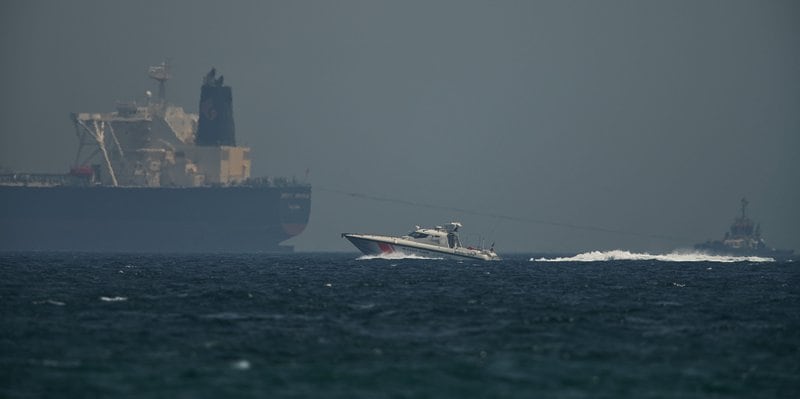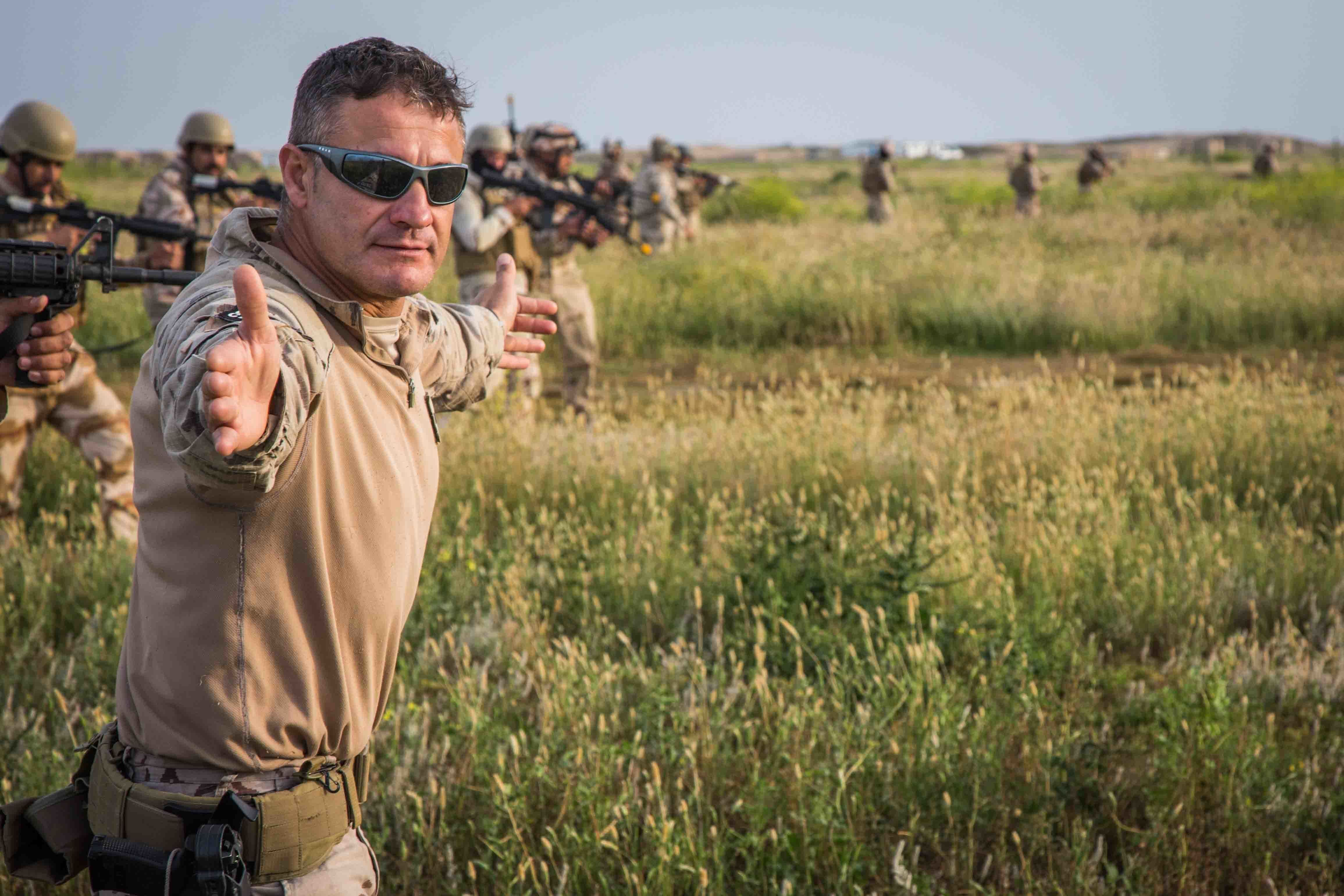WASHINGTON — The Pentagon on Thursday outlined proposals to the White House that would send military reinforcements to the Middle East to beef up defenses against Iran amid heightened tensions in the region. President Donald Trump, speaking to reporters before the meeting, said he was not convinced more troops are needed but would do whatever is necessary.
"We'll see what happens with Iran," Trump said. "I don't think we're going to need them, I really don't, but we're going to have a meeting on it in about an hour. I would certainly send troops if we need them."
Acting Defense Secretary Patrick Shanahan told reporters the Defense Department has not yet determined how many troops might be sent to reinforce the existing U.S. military presence in the region.
RELATED

He disputed reports by The Associated Press and others that the Pentagon was proposing to send up to 10,000 more troops to the Middle East. He said reports citing specific figures were "not correct," but he would not say whether the numbers under consideration were higher or lower.
"What we're focused on right now is, do we have the right force protection in the Middle East," Shanahan said, referring to defensive forces. "It may involve sending additional troops."
He said he was in regular contact with Marine Gen. Kenneth F. McKenzie, the Central Command chief, about how to shape the U.S. force presence in the Mideast with potential Iranian threats in mind.
Officials said the proposed troop reinforcements are not a response to any new threat from Iran but are aimed at strengthening security for the U.S. forces already in the region. They said the troops would be defensive forces, and the discussions include additional Patriot missile batteries, more ships and increased efforts to monitor Iran.
The officials spoke on the condition of anonymity because the plans have not been formally announced.
RELATED

Thursday's meeting comes as tensions with Iran continue to simmer, and it wasn't clear if a decision would be made during the session. Any move to deploy more forces to the Middle East would signal a shift for Trump, who has repeatedly emphasized the need to reduce America's troop presence in the region.
Secretary of State Mike Pompeo said Thursday that the president was evaluating the force posture in the region "every day."
"We're evaluating the risks, making sure that we have it right," he told "Fox and Friends."
U.S. officials have provided few details about possible Iranian threats but indicated they initially involved missiles loaded onto small Iranian boats. This week officials said the missiles have been taken off the boats near Iran's shore, but other maritime threats continue.
Sending more troops could also raise questions on Capitol Hill. During back-to-back closed briefings for the House and Senate on Tuesday, defense leaders told congressional officials the U.S. doesn’t want to go to war with Iran and wants to de-escalate the situation.
Pompeo and Shanahan told lawmakers the U.S. is seeking to deter, not provoke, Iran, even while accusing Tehran of threatening U.S. interests in the Mideast. Shanahan told reporters, "Our biggest focus at this point is to prevent Iranian miscalculation."
Many in Congress are skeptical of the administration's approach to Iran, questioning whether it is responding to significant new Iranian threats or escalating a situation that could lead to war.
In early May, the U.S. accelerated the deployment of an aircraft carrier strike group to the Mideast and sent four B-52 bomber aircraft to the region. The Pentagon also decided to move a Patriot air-defense missile battery to an undisclosed country in the area.
The Trump administration has evacuated nonessential personnel from Iraq, amid unspecified threats the administration said are linked to Iranian-backed militias in the country.
On Sunday, a rocket was fired into Baghdad’s heavily fortified Green Zone, landing less than a mile from the sprawling U.S. Embassy. There were no injuries and no group claimed responsibility, but the rocket was believed to have been fired from east Baghdad — which is home to Iran-backed Shiite militias.
RELATED

Some Democrats say Trump is responsible for drawing Iran’s ire. Last year he abruptly pulled the U.S. out of the Iran nuclear deal, negotiated during the Obama administration to prevent Iran from nuclear weapons production, without crafting a coherent strategy for how to combat other Iranian behavior like supporting extremist organizations. He also has reimposed punishing sanctions that have crippled Tehran’s economy, and designated Iran’s Revolutionary Guard Corps as a foreign terrorist organization in April.
“I have yet to see any exhibited strategy,” said Democratic Rep. Abigail Spanberger of Virginia, a former CIA officer. She said she finds many of the administration’s recent statements on Iran to be “deeply troubling.”









